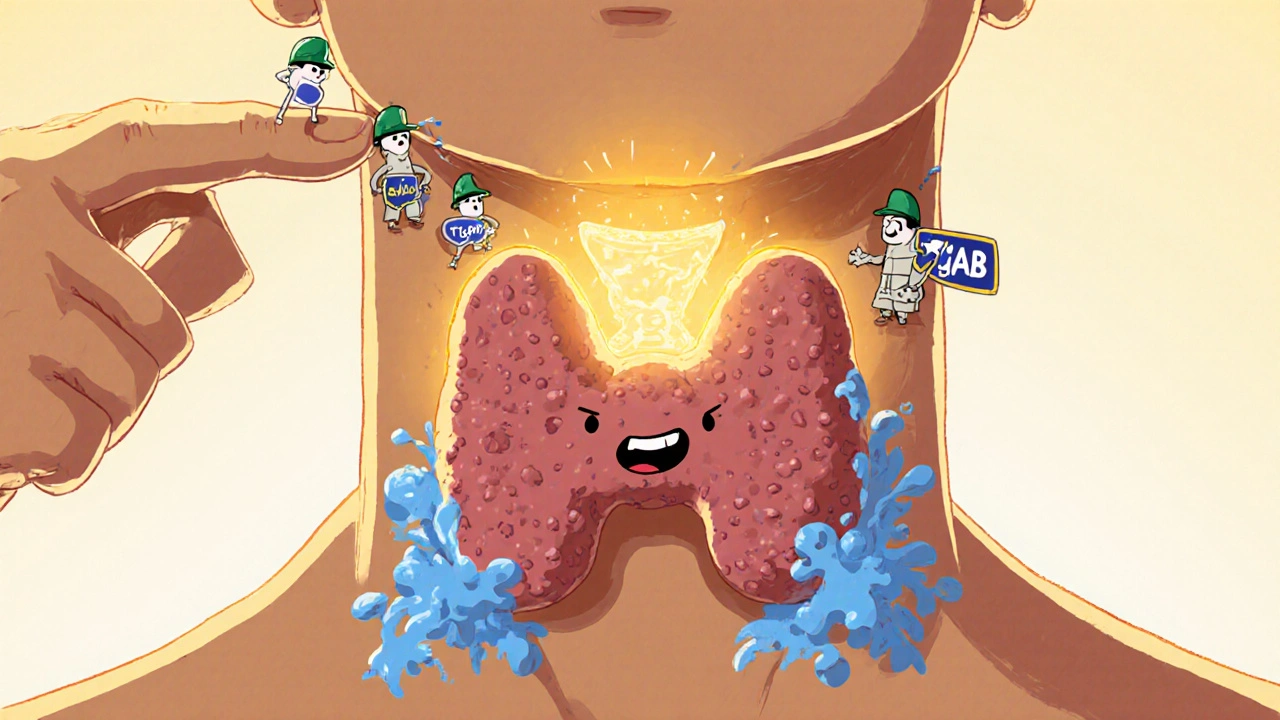Autoimmune Thyroid Disease: Causes, Symptoms, and Treatment Options
When your immune system turns against your own thyroid, you’re dealing with autoimmune thyroid disease, a condition where the body mistakenly targets thyroid tissue, leading to either underactive or overactive thyroid function. Also known as autoimmune thyroiditis, it’s the most common reason people develop hypothyroidism or hyperthyroidism. This isn’t just a hormone issue—it’s an immune system malfunction that can ripple through your energy, weight, mood, and even your heart.
Two main types drive most cases: Hashimoto’s thyroiditis, the leading cause of underactive thyroid, where immune cells slowly destroy thyroid tissue, and Graves’ disease, an overactive thyroid condition where antibodies force the gland to produce too much hormone. Both involve thyroid antibodies, specific proteins like TPOAb and TgAb that flag the thyroid as an enemy. These aren’t just lab numbers—they’re the smoking gun doctors use to confirm the diagnosis. Many people with these conditions also struggle with fatigue, weight changes, hair loss, or heart palpitations, often long before their thyroid levels show up abnormal on a test.
What triggers this attack? Genetics play a role, but so do stress, infections, vitamin D deficiency, and even gluten sensitivity in some cases. It’s not something you catch like a cold—it’s a slow burn, often starting quietly and getting worse over years. That’s why so many people go undiagnosed until symptoms pile up. The good news? Once identified, it’s manageable. Most people take daily thyroid hormone replacement like levothyroxine to restore balance. Others with Graves’ may need antithyroid drugs, radioactive iodine, or even surgery. Monitoring isn’t optional—it’s the key to staying stable.
You’ll find real-world guidance here: how to recognize early signs, what blood tests actually matter, how to talk to your doctor about antibodies, and why some medications work better for certain people. We also cover how thyroid issues connect to other conditions—from fertility to heart health—and what lifestyle tweaks actually help. No fluff. Just clear, practical info from real cases and studies that back up what works.
Hashimoto's thyroiditis is the most common cause of hypothyroidism. Learn how TSH levels are managed with levothyroxine, why symptoms persist despite 'normal' tests, and what triggers flares - backed by clinical data and patient experiences.
Nov, 16 2025

